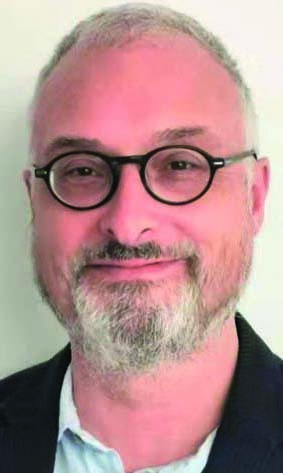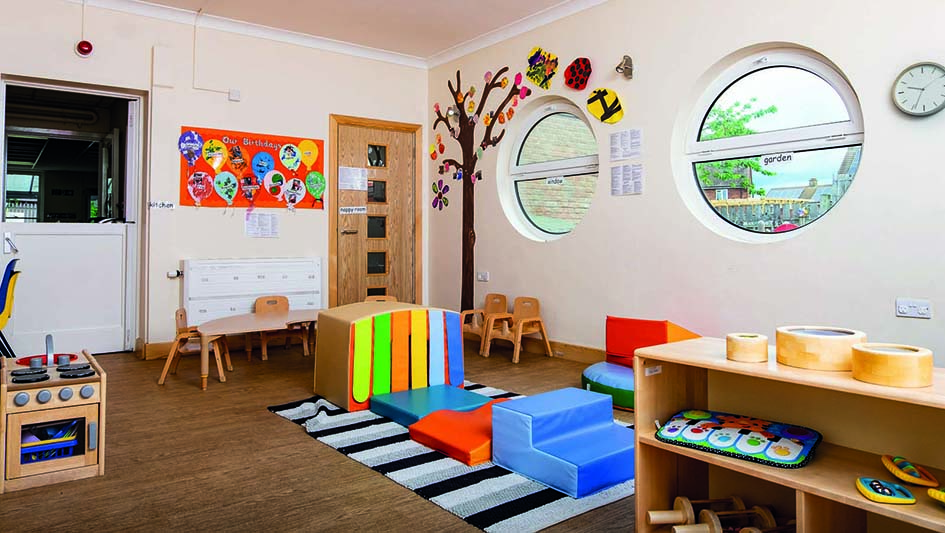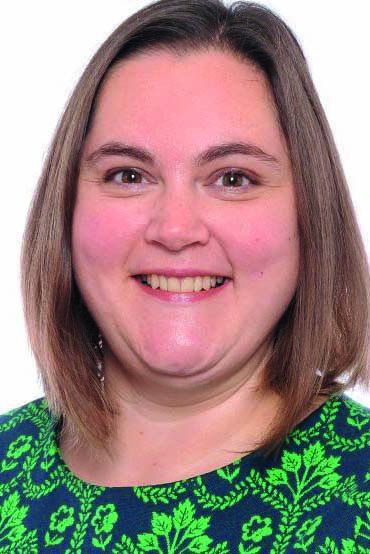
The Government’s Early Years Education Recovery Programme (EYERP) pledged up to £180 million to ‘build a stronger, more expert’ workforce equipped to address the ‘impact of the pandemic on the youngest and most disadvantaged children’.
In the 2021 announcement, at the tail end of the pandemic, the DfE listed three priority areas where it hoped children would ‘catch up on lost learning’: communication and language (C&L) is the top priority, followed by personal, social and emotional development (PSED), and maths.
A further announcement in 2022 said the money would ‘help to address existing recruitment and retention challenges’.
Explaining the rationale for the child development priorities, the DfE says, ‘Research following the pandemic indicated that personal, social and emotional development and communication and language were the areas most impacted. Evidence also shows that improving outcomes in early language, literacy and maths are critical areas for later success, and especially for disadvantaged children.’
Three core elements, being delivered free of charge to settings, are: the Early Years Professional Development Programme (EYPDP), Early Years Stronger Practice Programme, and the Experts and Mentors Programme.
A ‘universal offer’ of ongoing training in child development and how to improve the home learning environment has also been included under the plan alongside other professional qualifications.
The DfE says it has advertised the programme widely including through its delivery partners, newsletters, trade press, social media and local authority engagement.
Settings, managers and practitioners are able to access it via different routes, based on varying criteria (see box, below).
Overall, funding is available until March 2025, although the experts and mentors and hubs projects are currently only funded until 2024 – July and autumn, respectively.
THE EYPDP
An evaluation commissioned by education consultancy The Education Development Trust (EDT), which is delivering the EYPDP, found ‘99 per cent of practitioners who completed the EYPDP in 2022 said they were able to apply their new learning to improve their everyday practice; 98 per cent of practitioners said they felt more confident in their role’.
The DfE says funding has been released for 10,000 further places and the trust says around 5,000 practitioners have signed up so far this year, with applications currently open for January 2024.
Modules, tailored to support two- to four- year-olds, are delivered via online training and facilitated webinars. The course takes around 60 hours, across eight months.
C&L content is written in partnership with children’s charity Speech and Language UK (which also facilitates webinar-based discussions), PSED with children’s mental health charity the Anna Freud Centre, and early maths with Dr Sue Gifford, a lecturer in maths education and a numeracy specialist, and Dr Cath Gripton, an assistant professor in primary education.
The programme has been ‘designed to fit flexibly around busy lifestyles’ and is available in the mornings, afternoons, evenings and some weekends.
However, and despite being able to apply to local authorities for cover, many settings may not be in a position to release practitioners for training due to workforce issues, according to commentators.
Felicity Dewsbery, deputy head of Northants provider Pen Green, says, ‘From an employer’s perspective, you’re thinking about how you run that training so people can access it – because it’s really challenging at the moment in terms of the recruitment and retention issue.
‘It’s really hard for people to come out of the setting for training. It just takes someone to be on annual leave or off sick and you’re out of ratio.’
 Jan Dubiel, an expert adviser to the programme, says, ‘The specifically targeted content of the EYPDP, and its clear intention to aid understanding, empowers early years practitioners and childminders to be confident in their knowledge and understanding of the process of learning and enabling progress.’
Jan Dubiel, an expert adviser to the programme, says, ‘The specifically targeted content of the EYPDP, and its clear intention to aid understanding, empowers early years practitioners and childminders to be confident in their knowledge and understanding of the process of learning and enabling progress.’
EXPERTS AND MENTORS PROGRAMME
Available to settings with high levels of additional needs or disadvantage or those with a lower Ofsted rating, one-to-one coaching and mentoring is also available.
The support is provided by senior members of the sector who are recruited by delivery partner Pen Green, and then matched with eligible settings. Experts and mentors are provided with in-person training specific to their role, designed and delivered by Hempsalls early years consultancy.
Experts then meet with setting leaders to work out their priorities and provide up to three days of in-person coaching over a term, according to the DfE. Mentors provide practitioners with six hours of mainly virtual support per setting.
Not ‘TOP-DOWN’
Dewsbery, who is also an area lead and expert in the scheme, believes it has great potential for impact. ‘We’ve had lots of positives,’ she says. ‘I think what’s unique is the experts go out into the settings and the mentors can also go out.’
She acknowledges that the word ‘expert’ may be off-putting, adding,‘I think most people in the programme would agree with that.’
However, in her experience, it is not intended to be top-down. ‘It’s more about being that supportive, reflective practitioner, to offer that guidance and support because you’ve faced the issues that they are facing,’ she explains. ‘It’s been a very challenging time and is still a very challenging time for the sector.’
This is the view of Lynette Wilson-Sweet, childcare operations manager for Early Years Alliance who reports a range of good and bad experiences in her role as a mentor.
She believes a key factor is the quality of communication, whether that is coming from the local authority or via different programme team dynamics.
A high-quality area lead, who was also an early years link officer at the council, was behind one success story. ‘The setting wasn’t expecting a good Ofsted rating and so it wanted the support,’ she says. ‘The link officer was very clear about what we needed to do.’
At other settings, engagement was poor. Some reluctance stemmed from a lack of understanding of the scheme and why the local authority had referred them. ‘One setting – I asked what they wanted support with, and they weren’t quite sure,’ says Wilson-Sweet.
Others had been signed up to an earlier iteration of the project, in which mentoring was entirely virtual and ‘all about supporting the settings with online child development training’. This is an irony in a Covid recovery package hoping to mitigate the impact of social isolation. It now has the option of being in-person.
Another challenge has been a shortage of experts and mentors in some areas.
‘My experience is local is better, so you can do the hands-on support, even if it’s just your first visit. It made such a massive difference,’ says Wilson-Sweet.
Asked for her views on the DfE’s subject area priorities, she says the focus should include the EYFS prime areas of PSED and C&L, adding, ‘Literacy is important because some children haven’t had access to books, but I’m not sure maths would be my priority.’
Wendy Kettleborough, an early years consultant operating in Yorkshire, who has worked as an expert, believes the scheme may not have made the most of its potential so far, although her direct experience has been ‘really positive’.
‘I don’t know if it’s replicated throughout Britain,’ says Kettleborough, adding, ‘I’ve known quite a few settings – they say “How do I get on that?” – I don’t think it’s been conveyed.’

‘NOT ENOUGH TIME’
 Becky Cook, executive head teacher at Waterton Pre-schools in Wakefield, West Yorkshire who has worked for three terms as an area lead and mentor, takes these concerns further. She started off enthusiastically after ‘excellent training’ which set out roles and responsibilities as well as drawing out the Covid-specific themes being targeted.
Becky Cook, executive head teacher at Waterton Pre-schools in Wakefield, West Yorkshire who has worked for three terms as an area lead and mentor, takes these concerns further. She started off enthusiastically after ‘excellent training’ which set out roles and responsibilities as well as drawing out the Covid-specific themes being targeted.
‘I really believed in the programme – I felt “I can really make a difference”,’ she recalls, adding, however, that as time has gone on, ‘I’ve lost my enthusiasm.’
Reasons include feeling hamstrung by the time limit, as well as settings being prone to cancel mentoring appointments at the last minute due to staffing issues.
‘I’ve had members of my team that have left because it’s not making the most of their time,’ she says, adding, ‘There are times when no-one has turned up for online training.’
Managers also have a great deal on their minds that they want to offload. Cook explains, ‘Some settings welcome us, at some there’s a little bit of resistance – we talk them round, explain that the expert is a critical friend.
‘Then there are so many issues before we can get to the children and the curriculum.
‘SEND, funding, recruitment, quality of Level 3 training. Some have issues with owners, premises, the local authority.
‘From my point of view, I feel I’m a little bit impotent. There’s not enough time to see it through and so I feel like I’m lighting the torch and walking away.’
FEELING HOPEFUL
Rachel Howarth, a nursery manager at BEST in Langford, Bedfordshire, counts herself among the happy endings: within two months of being freshly recruited to a nursery manager role, her setting upped its Ofsted rating. This was within a few weeks of receiving support from Dewsbery, and Howarth is hopeful that improvements will continue, with work ongoing.
‘We looked at what we wanted to do for our children,’ she explains, describing how the discussion focused on redeveloping the curriculum, and creating individualised learning that addressed the Government’s developmental priorities.
She is mindful, however, that her setting is ‘overstaffed’, and says that other nurseries may not be in such a position to spare staff for mentoring.
EASING DEPRIVATION AND SEND PRESSURES
Outstanding-rated setting Dearne Valley Nursery, based in an area of Rotherham, South Yorkshire with high levels of deprivation, was matched with expert Kettleborough.
Of its 200 children, around 20 per cent have some sort of significant need, says manager Nic Hamer, adding that the rate is ‘around 50 per cent’ when including speech and language difficulties. ‘This year’s cohort have really low starting points,’ says Hamer, adding, ‘I think it’s partly disadvantage but partly lack of experiences they’ve had due to Covid.’
She continues, ‘Children not being able to emotionally regulate themselves has a significant effect on their learning and the safety of other children.’
Kettleborough helped refocus the setting’s team on schemas of play behind stress-inducing behaviours, and even on understanding each other’s triggers.
The setting’s SENCO, Hannah Hughes, explains that while sector-wide pressures are not being solved by the programme, the support came along for her setting at the right time and she expects its effect to be long-lasting. ‘It’s changed our mindset and inspired the staff,’ she says.
‘I think some of the issues are bigger than the training we had from Wendy, but I think the changes we’ve made will always be there – it will impact the nursery indefinitely,’ she adds.
‘Instead of [us] becoming overwhelmed, she gave us ways of approaching things. It was a bit like therapy.’
STRONGER PRACTICE HUBS PROGRAMME
The DfE says that 18 Stronger Practice Hubs are now up and running nationally, across nine regions, set up by the charity National Children’s Bureau and intended to be self-sustaining once funding stops next year.
Hubs are regional networks tasked with:
- Disseminating evidence-based best practice developed by the Education Endowment Foundation (EEF), a charity working to eliminate the attainment gap between children of low-income families and their more affluent peers. Methods include easy-to-digest video clips and local events.
- Supporting settings to submit local programmes for trial by the EEF.
- Carrying out ongoing local needs analysis.
- Identifying settings for bespoke support from EEF programmes.
The hubs are also said to be supporting existing networks with extra capacity.
‘The Stronger Practice Hub model works directly with the sector on a system leadership approach, with strong settings becoming a base for support, collaboration and practice-sharing for and with other parts of the sector,’ explains the National Children’s Bureau.
As part of the selection process, lead settings had to demonstrate how they work in disadvantaged areas and understand disadvantage.
Highfield Nursery School, a maintained nursery school in Ipswich, Suffolk, successfully applied to become a lead setting, with partners including a children’s centre, a PVI group and a primary school, having already been involved with the experts and mentors project and in delivering EEF programmes.
‘We were already delivering that Covid recovery,’ says Ruth Coleman, director of East of England Early Years Stronger Practice Hub and head teacher at Highfield. ‘Hubs are there to continue that work.’
The hub, which covers Suffolk and Norfolk, which are affected by deprivation, is experiencing strong demand, but not all settings feel able to take the opportunity.
Coleman says, ‘We’ve got the settings who are already involved in the experts and mentors [programme] and are asking, “Can I put my setting forward for some extra support within the hub?”
‘Some settings say, “We can see the difference it will make, we can’t let this pass us by.”
‘Some say, “I don’t have time to release staff”, but we tell them each time we release places.’
The hub also held a conference on creativity earlier in the summer and is planning more.
Reflecting on the prospect of funding ending next year, Coleman says, ‘It feels like two years isn’t quite enough.
‘Once the hub funding finishes, it’s whether the settings would be able to pay for the support. It would be great if the funding continues.’
How to access the programmes
- EYPDP: setting leaders apply (backfill available)
- DfE presentation on Foundation Years channel
- Experts and mentors: criteria details and application via Pen Green
- Search Practice Hubs
- Search EEF Early Years Evidence Store resources
- Details of all programme elements and links to other funded training opportunities, including online child development, are on the DfE’s website
Value for money?
There is evidence of good outcomes for some settings under pressure from SEND, PSED, C&L and disadvantage challenges, and a sense that improved relationships between settings and parents is a focus.
This comes from interviews conducted for this special report and sample (semi-anonymised) practitioner reviews of training provided by the EDT.
The DfE also claims in a 2022 press release that as a result of the first cohort of 1,300 practitioners completing the EYPDP, ‘20,000 children will have benefited from better-trained, more confident staff’.
Another of its claims relates to the potential return on its £180 million investment – ‘improving young children’s pre-school language skills could boost the economy by up to £1.2 billion over the course of their lifetimes’, according to think-tank Pro Bono Economics.
When approached for details of how it is testing the plan’s impact and for the sums of money spent so far, the DfE did not assist, save to say that it has commissioned independent evaluations that are ‘ongoing’ and ‘will inform decisions about future funding’ within the programme.
No total was provided for how many settings have been supported so far by experts and mentors. The highlighted flaws have major implications as they relate to the plan’s in-built limitations. These include the relatively short timeframe of the programme/funding cut-off in 2024/25, its heavy reliance on cash-strapped local authorities to convey information, and its apparent failure to put more staff on the ground.
For some commentators, the plan seems disingenuous. Neil Leitch, chief executive of sector representative the Early Years Alliance, believes a serious recovery plan would do much more for settings. ‘What I think it should look like is funding for additional staff to specifically deal with children displaying PSED difficulties,’ he says.
For others, it is a genuine effort to ‘professionalise early years’ that should be seized by the sector.
‘The funded childcare offer is about getting parents back to work, but then this programme is about boosting the sector,’ says nursery manager Rachel Howarth. ‘I’m hoping that the more it’s spoken about and shared with parents, the more they will understand that this is a place for my child to learn.’









